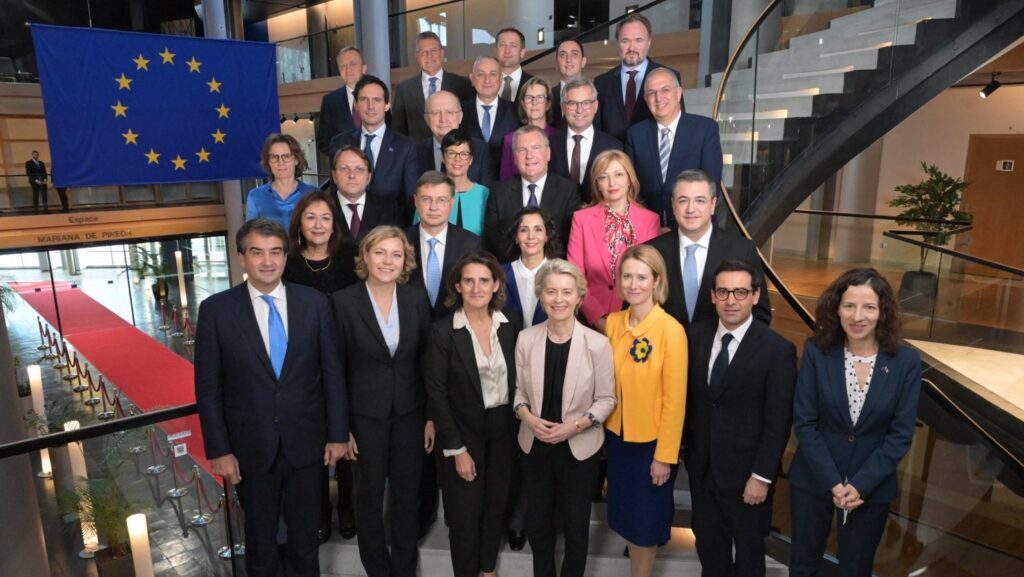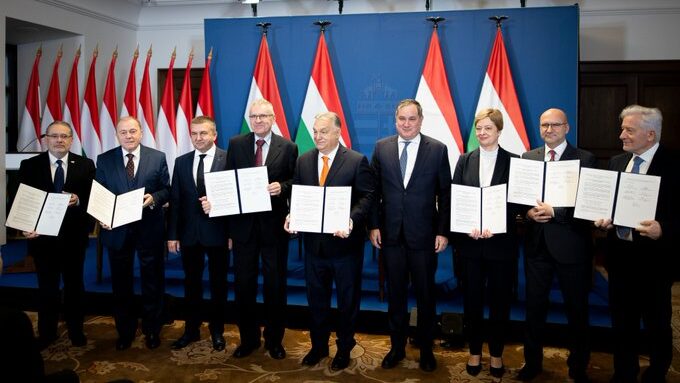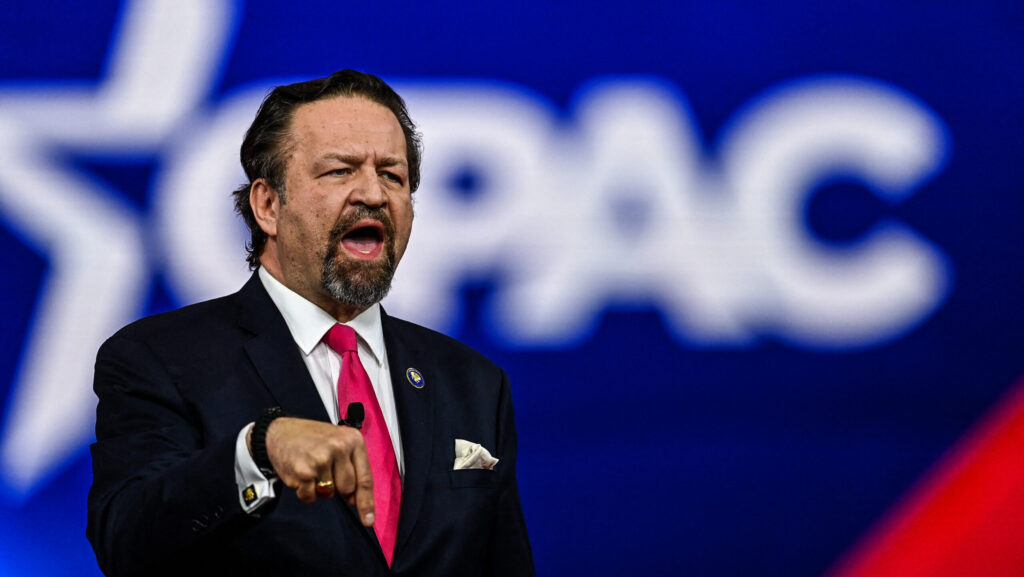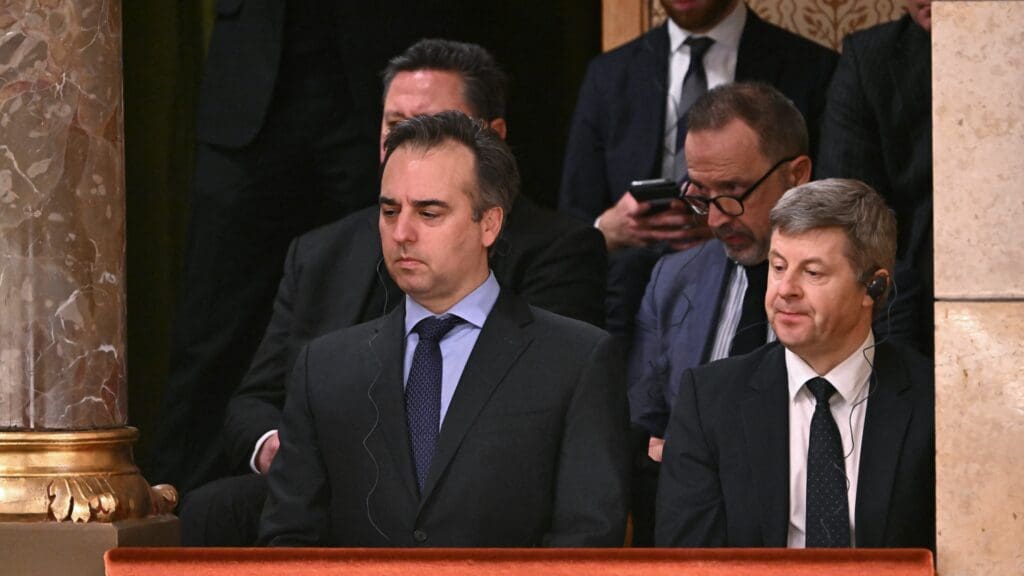
Following their historic success in Sunday’s Romanian parliamentary elections, Hunor Kelemen, President of the Democratic Alliance of Hungarians in Romania, expressed optimism about the party’s chances of joining the next Romanian government. This marks a significant step in ensuring strong representation for Hungarians in Romania.

The Advent Basilica, located in front of St Stephen’s Basilica in Budapest, has achieved unprecedented international acclaim, being named the ‘Best European Christmas Market of All Time’ by the European Best Destinations travel portal. This marks the first and only time in the competition’s 15-year history that an event has received this prestigious title.

Donald Trump has issued a stern warning to Hamas: if all hostages are not released by 20 January, they will face consequences unprecedented in American history. During his first term, Trump’s peace through strength diplomacy proved highly effective, and there is every indication that he will continue to achieve significant foreign policy successes as President.

In recent days jihadist insurgents in Syria have launched attacks with an intensity not seen in years, raising the threat of reigniting the civil war that began thirteen years ago. On Monday, 2 December Hungarian Prime Minister Viktor Orbán met with Syrian Orthodox Patriarch Ignatius Aphrem II to express his support for the Syrian Christian community.

With 6.4 per cent of the total vote, the Democratic Alliance of Hungarians in Romania (RMDSZ) has achieved its best result in Romanian parliamentary elections since 2000. RMDSZ President Hunor Kelemen highlighted that Hungarian voters in Transylvania recognized the danger posed by the rise of extremist parties threatening their community.

Last Friday an explosion occurred at a canal near the town of Zubin Potok in Kosovo, a key component of the country’s energy supply. While Pristina blames Belgrade for the incident, Hungarian Prime Minister Viktor Orbán has called for an independent investigation.

Viktor Orbán has been a highly constructive politician in recent years, shaping his positions around Hungary’s national interests, incoming President of the European Council Antonio Costa said in a recent interview. The former Portuguese prime minister has known Orbán for many years and is a frequent visitor to Budapest.

Barnabás Varga’s brace against Swedish Malmö propelled him to the top of the UEFA Europa League scoring charts. With Thursday night’s victory, Ferencváros took a significant step toward advancing to the knockout stage.

Hungarian Prime Minister Viktor Orbán has nominated incumbent Finance Minister Mihály Varga to assume the role of Governor of the Central Bank of Hungary in March. The position will become vacant as the current governor, György Matolcsy, steps down after completing two terms. The central bank is expected to play a pivotal role in shaping Hungary’s new economic strategy.

Balázs Orbán’s Hussar Cut was launched in Chinese on Thursday at an event organized by the Chinese Academy of Social Sciences in Beijing. ‘Hungary’s independent and sovereign policies are increasingly recognized internationally, offering a unique and independent voice within various frameworks,’ the political director of the Hungarian prime minister underlined in his remarks at the event.

With the lowest level of support in the EU’s history, the European Parliament has approved Ursula von der Leyen’s second Commission, set to begin work in December. The largest conservative EP group, Patriots for Europe unanimously voted against the new Commission, stating that it goes against the will of the electorate.

President-elect Donald Trump picked former Chief of Staff of the National Security Council Keith Kellogg as special envoy for the war in Ukraine. Hungarian Minister of Foreign Affairs and Trade Péter Szijjártó welcomed the decision, highlighting its significance in strengthening the global peace camp.

An agreement reached on Tuesday between Hungarian Cardnet and Chinese Macau Pass will pave the way for the establishment of a payment platform linking Chinese and European payment and settlement systems. ‘Sino–European cooperation could reach an entirely new dimension through this agreement,’ Hungarian Minister of Foreign Affairs and Trade Péter Szijjártó remarked.

‘Hungary, a steadfast NATO ally that has balanced its Western alliances with a distinctly conservative trajectory, is well-positioned to serve as a key partner to the United States,’ Bryan Leib highlighted in his recent op-ed published on Townhall.

The Danube Institute organized a prominent conference addressing the geopolitical tensions and opportunities for collaboration in the increasingly significant Indo-Pacific region. During the event experts from nations with interests in the region examined its future prospects through two panel discussions.

In response to the growing number of reports of party political and ideological bias in Hungarian universities, the Foundation for Transparent Journalism has launched the ‘Transparent Education’ initiative. The project includes the development of guidelines, workshops, and a hotline for students to report such cases.

At the request of Special Counsel Jack Smith and his team on Monday, the election subversion case against Donald Trump was dismissed. Prosecutors also moved to dismiss the case concerning the alleged mishandling of classified documents. Additionally, Trump’s hush money case could be deferred until the end of his four-year term, marking significant legal victories for the president-elect.

Hungarian Prime Minister Viktor Orbán has announced a historic wage agreement on Monday. Under this deal, Hungary’s minimum wage will see a cumulative increase of approximately 40 per cent over the next three years.

President-elect Donald Trump has appointed Hungarian-born Sebastian Gorka as director general for counter-terrorism in his new administration. Gorka, who previously served in Trump’s first administration, is a staunch supporter of Israel and takes a hardline stance against radical Islamic terrorist groups.

With Austria’s veto lifted, Romania and Bulgaria are set to become full members of the Schengen area by 2025. The agreement was reached in Budapest under the auspices of the Hungarian EU Presidency, marking yet another success for the often-criticized presidency in recent weeks.

It’s official! As expected, US Ambassador to Hungary David Pressman has announced his departure following Donald Trump’s victory. Pressman’s tenure will be remembered for his persistent criticism of the Hungarian government, and his exit may signal the start of a new chapter in Hungarian–American relations.

The International Criminal Court issued arrest warrants on Thursday for Israeli Prime Minister Benjamin Netanyahu, his former defence minister Yoav Gallant, and Hamas leader Ibrahim Al-Masri on charges of alleged war crimes and crimes against humanity. Hungarian Prime Minister Viktor Orbán condemned the decision, stating that Netanyahu will not be arrested if he visits Hungary.

‘Europe must break out of this echo chamber, find its place in its relationship with Asia, and recognize that it is part of the Eurasian region. It must leverage all the advantages this position offers, because without doing so, we cannot compete with other global power centres,’ Hungarian Prime Minister Viktor Orbán warned at the Eurasia Forum in Budapest.

‘It’s nice that a relatively small Central European country like Hungary could be in some ways a sort of laboratory for these kind of family policy experiments so that we could identify which policies had the most significant impact and which ones fell short of delivering the expected results,’ Heritage Foundation Senior Research Fellow Jay W Richards highlighted in an interview with Hungarian Conservative.

The Court of Justice of the European Union began its hearing on Hungary’s child protection law this week. Hungary faces opposition from 16 EU member states and the European Commission, which have labelled the law as ‘anti-LGBTQ’. A ruling against Budapest could carry significant and unforeseen implications for the future of the European Union.

Balázs Orbán, the political director to the Hungarian prime minister, has penned a detailed opinion piece on the achievements of the Hungarian EU presidency thus far. And there have been plenty: the successful hosting of two Budapest summits, the adoption of the Budapest Declaration, and the expansion of the pro-peace camp—all of which Hungary has influenced directly or indirectly.

‘Sovereign conservatism has a moral duty to prioritize what is best for your own people. If you are not strong enough to defend your position, you are not sovereign,’ Balázs Orbán stated. The political director to the Hungarian prime minister made this remark while participating in a conference hosted by the Danube Institute focusing on the foreign policy implications of a second Donald Trump presidency.

‘If the US prioritizes its own interests, which is understandable, the EU must adopt a similar stance. Should Brussels focus on advancing external economic agendas, Europe risks falling behind in the race for prosperity and progress,’ Hungarian Ministerial Commissioner Bernadett Petri warned in an interview with Hungarian Conservative.

‘A new chapter is unfolding—the patriots have emerged on the horizon, and the era of sovereignty has begun,’ Hungarian Prime Minister Viktor Orbán declared at the first general assembly of the Patriots for Europe in Paris. The event, attended by the most prominent figures of the European right, saw Santiago Abascal, leader of Spain’s VOX party, elected as the new chairman of the political group.

‘I have never been to a summit where such a sharp and intense political discourse was generated,’ Hungarian EU Affairs Minister Jánós Bóka said in an interview with Magyar Nemzet. Bóka also revealed that the long-term goal for the future of the European Political Community is for it to become a platform for the European security system.

Hungarian Conservative is a quarterly magazine on contemporary political, philosophical and cultural issues from a conservative perspective.